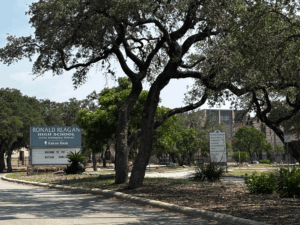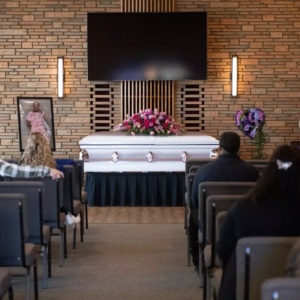
How behavioral health services in Georgia schools are helping build kids’ resilience
By Helen Robinson
Associate Director, Public Policy, Carter Center Mental Health Program
The fear faced by children across Georgia stays with Marnie Braswell.
Ask about students’ mental health and she’ll tell you of the boy whose grandfather died last year and whose father just tested positive for Covid-19.
“I can’t imagine going through that kind fear as a child,” said Braswell, child, adolescent and emerging adult coordinator at the Community Service Board of Middle Georgia, one of the state’s largest adolescent providers.
Braswell has seen an uptick in students seeking behavioral health services through school as the pandemic drags on and kids try to cope with grief, isolation, anxiety and missing key milestones, like in-person graduations.
In February 2020, The Carter Center’s Mental Health Program held a forum at Dublin High School in Dublin, Georgia, with educators, parents, students, policy leaders, providers and the community to discuss helping young people access behavioral health support through school.
It’s part of a broader effort by The Carter Center to ensure that communities and decisionmakers commit to helping all youth access school-based behavioral health services to achieve overall health, well-being and resiliency inside and out of the classroom.
School-based behavioral health encompasses supports that students, families, teachers and staff can access in and through schools, including counseling, social emotional learning, mental health literacy training for teachers and staff, positive behavioral interventions and mental health awareness.
“All of us benefit when a child is healthy and able to learn and succeed in school.” – Rosalynn Carter, Carter Center co-founder in “Within Our Reach”
When the new school year began in fall 2021, The Carter Center’s Mental Health Program spoke to Dublin forum participants about how school-based behavioral health programs have kept up the momentum during the pandemic.
Here’s what we learned:
Virtual school-based behavioral health is working.
In 2020, agencies like the Community Service Board of Middle Georgia stayed open and served kids using telehealth.
“We were able to do some face-to-face activities over the summer and the kids were so excited,” said Connie Smith, Apex program manager for the Community Service Board, which oversees school-based behavioral health in 60 schools.
Most school programming is now in person, but that could change and virtual services are critical to preventing a gap in support. Georgia and other states recently passed legislation to ensure that telehealth is covered by insurance.
[See this Back to School Toolkit to help youth explore and share their feelings, from the Georgia Department of Behavioral Health and Developmental Disabilities and Voices for Georgia’s Children]
School-based behavioral health is needed more than ever.
The Community Service Board is seeing so many kids across demographics that they are pulling staff from other departments to help, Braswell said. One positive is that students are more open about discussing their mental health.
“It used to be that because of stigma many people would not have reached out, but now they are,” Braswell said.
“Shout out to all the kids for making it through this,” Smith added.
Serving families is key to school-based behavioral health success.
To support parents, the community is expanding access to certified peer support specialist parents through the Georgia Parent Support Network (GPSN) and the Georgia Department of Behavioral Health and Developmental Disabilities.
Certified peer support specialist parents are parents who have experience raising a child with a mental health condition and/or substance use disorder and are trained by GPSN.
The Community Service Board, in collaboration with area Federation of Families chapters, hosts well-attended monthly parent support group meetings and has seen an increase in parents who want to be trained as peer counselors, including more fathers, Braswell said.
“I know as a parent it’s a comfort to be with other people going through the same struggle,” Braswell said.
The pandemic has shown the importance of providing access to behavioral health support for all youth.
It’s more crucial than ever to expand these programs by funding school-wide supports, ensuring public and private insurance covers behavioral health treatment and exploring the incorporation of certified peer specialists into school-based behavioral health programs.
“You’re not by yourself, we are all in this together,” Braswell said.
For more information on Georgia school-based behavioral health, visit cartercenter.org.
Helen Robinson is associate director for public policy in The Carter Center’s Mental Health Program where she analyzes federal and state-level policy that impact mental health parity and convenes key stakeholders to advance evidence-based approaches to prevention, treatment, and health promotion. She was previously director of advocacy at the YWCA of Greater Atlanta and lead trainer for the Georgia Women’s Policy Institute. She holds a master’s degree in public affairs from Indiana University and a bachelor’s in political science from Davidson College.



